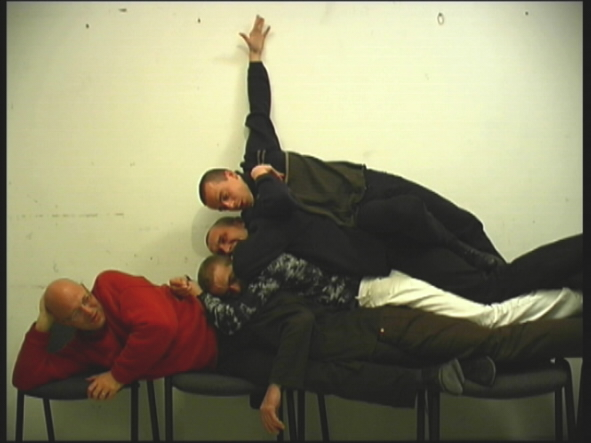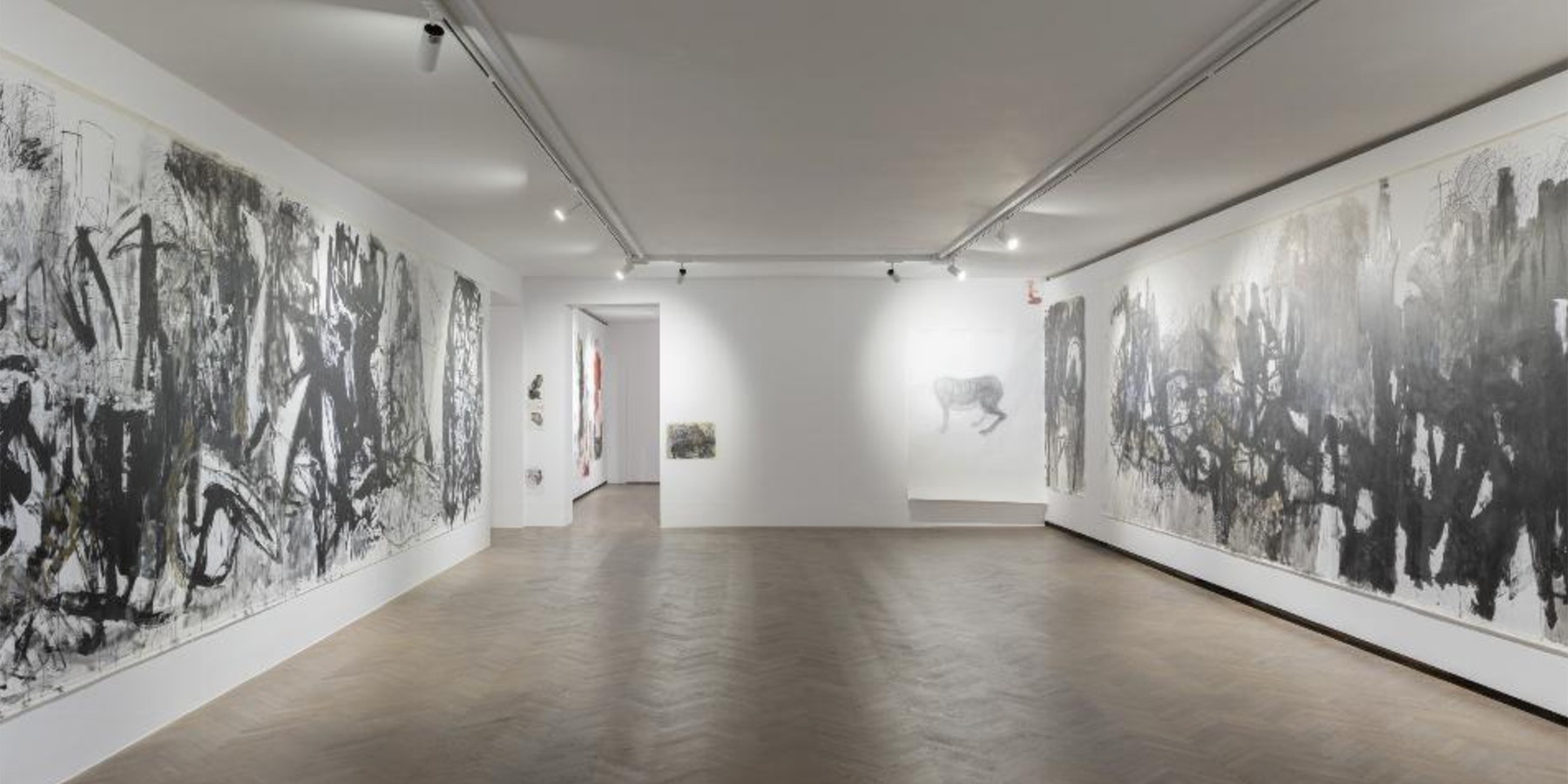Azorro (Oskar Dawicki, Igor Krenz, Wojciech Niedzielko, Łukasz Skąpski)
Hamlet
Azorro (Oskar Dawicki, Igor Krenz, Wojciech Niedzielko, Łukasz Skąpski)
Hamlet, 2002, video, 7 min
Collection II of the Arsenal Gallery in Białystok. Work purchased by the Arsenal Gallery

The actions of the Azorro collective represent a vibrant tendency in contemporary Polish art towards a mocking commentary on reality. Contrary to stereotypical belief, the use of irony in Polish culture, often associated with pompous narratives rather than witty observations, has a long-standing tradition. In the times of communism, humour that was a tool for unmasking the absurdities of the system and, as such, it made it possible for people to maintain a distance from the actual reality. Today, the practice of creating absurd situations is a method for reflecting upon the reality after the change of the political system in the country.
The acute sense of humour presented by Azorro allows for a different perspective on the stereotypes now present in the collective imagination, especially those related to the identity of Poles. The video work titled Hamlet shows a group of artists enjoying a conversation around a bottle. The characters, clad in rather scruffy clothes, make poorly coordinated gestures. Their voices belong to somebody else. Off screen we hear beautifully-enunciated fragments of the title drama by William Shakespeare. The words belong to a different order than that of the gestures and behaviour of the free and easy bunch.
Azorro’s joke, rooted in the postulative sphere of reality, reflects an awareness of the division into East and West. For the societies of the former Eastern bloc, the fundamental point of reference is the generally understood West: the myth of the “better world” and, at the same time, a land criticized for the secularization of life and excessive consumption. What is important in the work is that the artists have used the text of a drama written in the lingua franca of modern Europe. The incompatibility of the word with the image shows that the language is actually unspoken, hence a peculiar postulate – a remote and unattainable goal.
The awareness of historical baggage and the need to satisfy the demands of Western standards are the basic elements in surviving the time of transformation, of moving from one political and mental set of structures to another. As Hamlet shows, the process is dominated by a negative perception of the identity of the peripheries. The artists adopt a stance of the colonized, only that their struggle against identity is not a fight against the old Soviet empire but against the stereotypically understood West, which is now playing the role of a surrogate hegemon.
Izabela Kopania

PLAN YOUR VISIT
Opening times:
Thuesday – Sunday
10:00-18:00
Last admission
to exhibition is at:
17.30